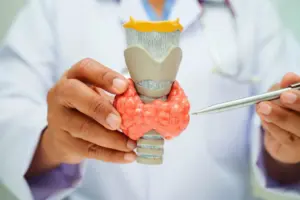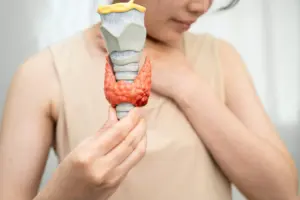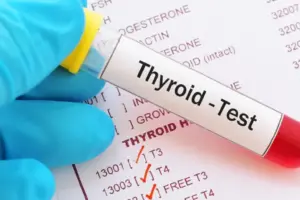
Thyroid problems: Let’s discuss the thyroid gland, a small yet powerful organ in your body. You may have heard about it before, especially if someone you know has a thyroid problem. Located at the base of your neck, this butterfly-shaped gland is part of your endocrine system and plays a big role in how your body functions.
What is the thyroid gland?
The thyroid is a hormone-producing gland that sits just below your Adam’s apple. It wraps around your windpipe and consists of two lobes connected by a small tissue bridge called the isthmus.
Also Read | Best and worst foods for thyroid health: What to eat and avoid
What does the thyroid do?
Its primary function involves the production of thyroid hormones, particularly T3 (triiodothyronine) and T4 (thyroxine), which are essential for maintaining the balance of your body’s metabolism. These hormones help regulate functions such as heart rate, body temperature, calorie burning, and organ function. If your thyroid is working well, everything in your body runs smoothly like a car with a well-tuned engine.
How does the thyroid gland work?
Your thyroid hormones impact almost every part of your body. If your thyroid isn’t working properly, your whole body feels it.
Problems with the thyroid typically fall into two categories: hypothyroidism (underactive thyroid) and hyperthyroidism (overactive thyroid).
What are hypothyroidism and hyperthyroidism?
Hypothyroidism means your thyroid doesn’t make enough hormones. Everything in your body starts to slow down. Common symptoms include feeling exhausted all the time, gaining weight without trying, feeling cold even when it’s warm, dry skin, a slower heart rate, and even constipation. The most common cause of thyroid issues is Hashimoto’s thyroiditis, an autoimmune condition in which your body attacks the thyroid gland.
Hyperthyroidism means your thyroid is making too much hormone. Common symptoms of hyperthyroidism include weight loss without dieting, feelings of anxiety or irritability, rapid heartbeat or palpitations, and increased sweating. You might even have trouble sleeping.
Goitre is when your thyroid gland swells. It might happen with overactive and underactive thyroid conditions. Sometimes, thyroid problems can be caused by an iron deficiency, although this is rare in countries where salt is iodised.

What causes thyroid problems?
There is no single reason. The common causes of thyroid problems include autoimmune diseases, iodine deficiency, genetics, and radiation exposure, particularly in the neck area.
How do you know if you have a thyroid problem?
The only way to ensure that you have a thyroid problem is by checking your thyroid hormone levels through a blood test. If your thyroid function is abnormal, your doctor might recommend additional tests, such as an ultrasound or a thyroid scan.
Also Read | Missing periods or heavy flow? It might be your thyroid
Your thyroid may be tiny, but it holds massive responsibility for your overall well-being. Left untreated, thyroid issues can lead to complications like infertility and cholesterol, as well as developmental delays in infants. A healthy thyroid requires a balanced lifestyle that includes a nutritious diet and effective stress management.








